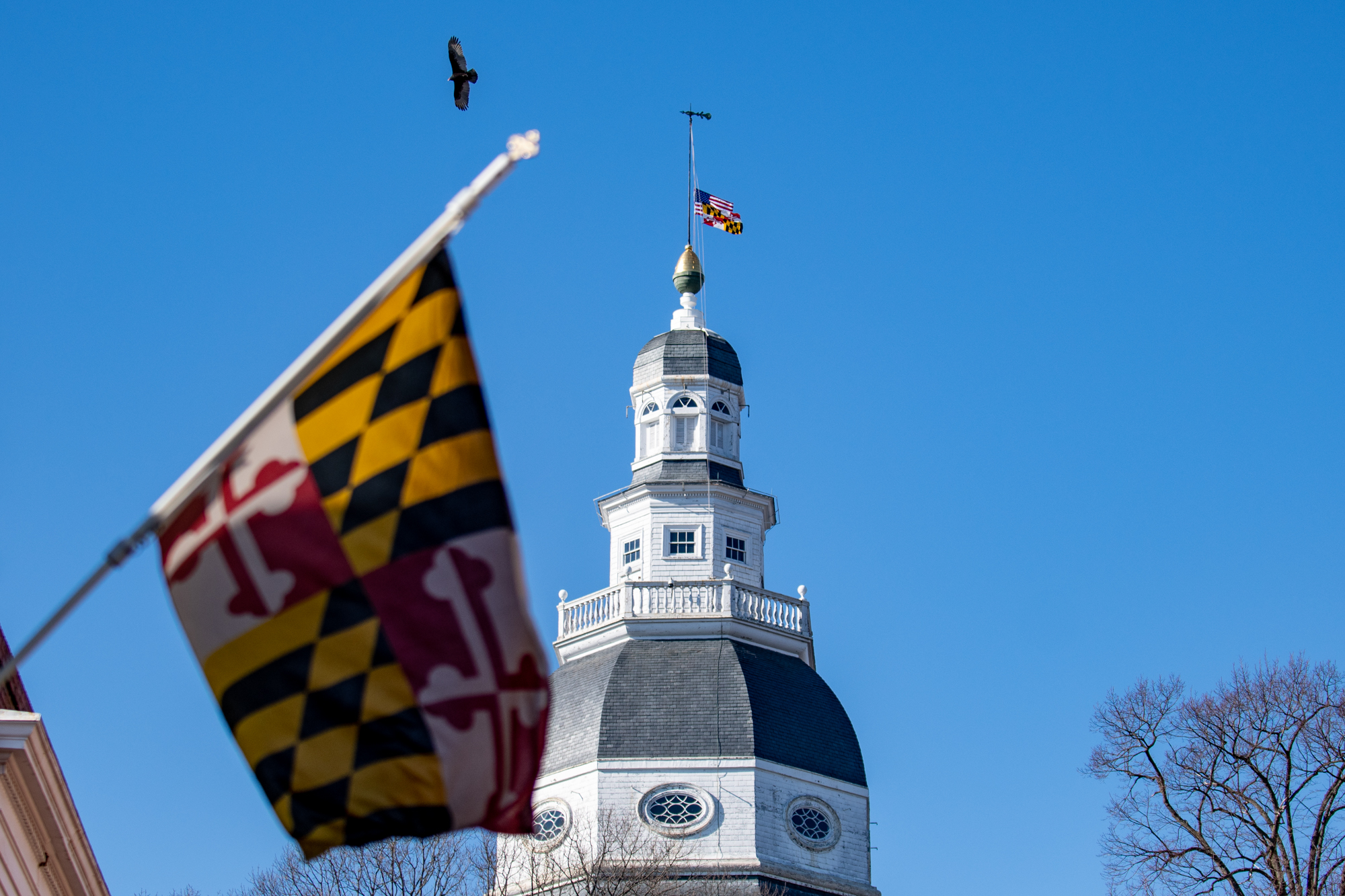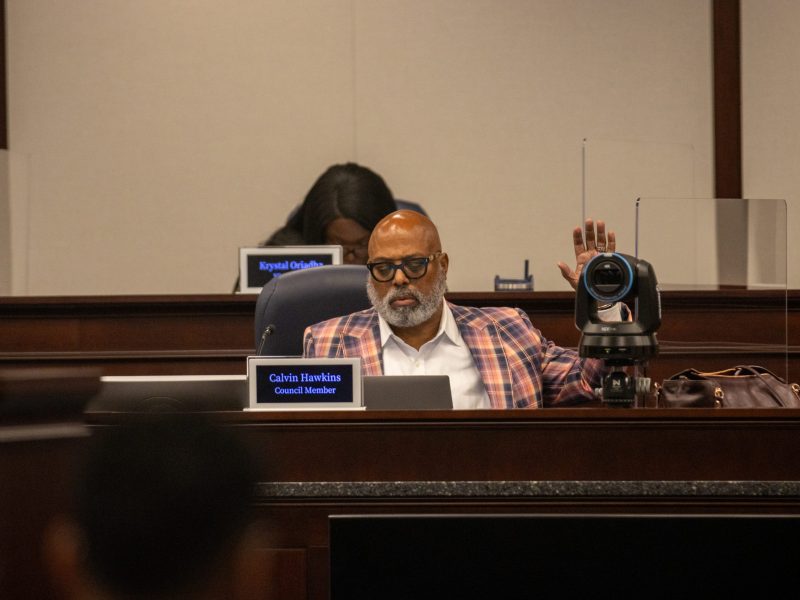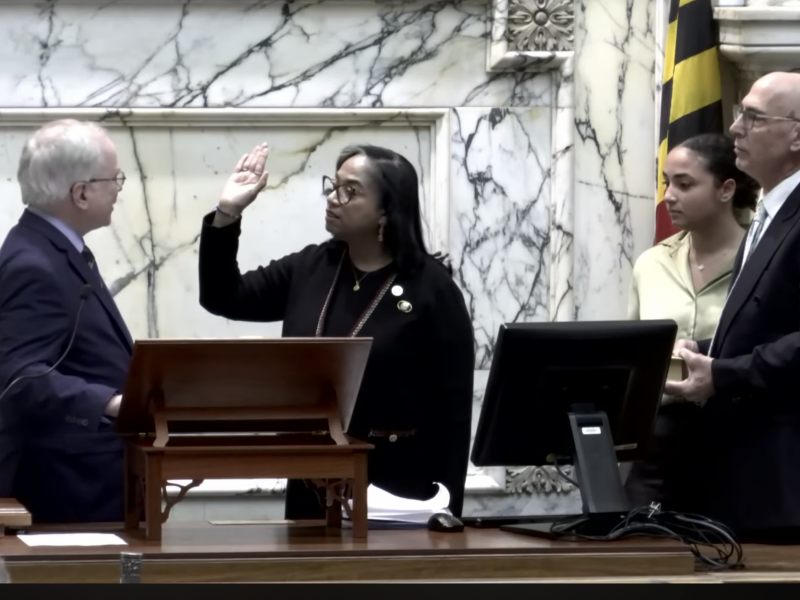Hours before the state’s 2024 legislative session came to a close Monday night, Maryland lawmakers passed a bill to provide relief to Baltimore port workers after the deadly collapse of the Francis Scott Key Bridge.
The Maryland Protecting Opportunities and Regional Trade Act, sponsored by Senate president Bill Ferguson (D-Baltimore City), will provide economic assistance to people and businesses affected by the reduction in port activity and establish a scholarship fund for children and spouses of construction workers killed while working on state projects.
“What we’re doing here today … is trying to provide some modicum of protection and relief for the people and small businesses in the port industries that rely on the everyday, full operation of the Port of Baltimore,” Ferguson said during a hearing for the bill April 2.
The legislation, which was first introduced March 29, will allow the state to use its rainy day funds, which are stored for future and emergency use, to enhance “targeted grant programs” for businesses affected by the collapse and workers who may not qualify for unemployment benefits, Del. Luke Clippinger (D-Baltimore City) said in a bill hearing Thursday.
The bill will create funding for children, stepchildren and surviving spouses of killed state construction workers to help cover tuition and mandatory fees at eligible institutions. A student’s eligibility for the scholarship will be determined by the institution they are accepted into or attending, according to the legislation.
[UMD faculty, staff criticize bill to reduce prescription drug coverage for state retirees]
The legislation will raise the Maryland Transportation Authority’s debt limit from $3 billion to $4 billion. The bill also includes monetary incentives for companies to return their business to the Port of Baltimore after it fully reopens, Clippinger said during Thursday’s hearing.
On March 26, a 984-foot cargo ship crashed into Baltimore’s Francis Scott Key Bridge, causing it to collapse into the Patapsco River.
Eight workers were conducting repairs on the bridge when it was struck. Six were killed in the collapse.
The U.S. Coast Guard has created small, temporary channels through the bridge’s wreckage to help vessels involved in the recovery and cleanup efforts move through the river, the Associated Press reported April 1.
Last week, President Joe Biden authorized $60 million in aid from the Federal Highway Administration to assist in the cleanup and rebuilding efforts.
The bridge’s collapse blocked the main channel to the Port of Baltimore — one of the largest ports in the nation — and severely limited its operation, according to Ferguson.
Nearly 20,000 jobs dependent on the operation of the port have been affected by the collapse, according to The Baltimore Sun.
Ferguson said that the port has been a “historic engine” for Maryland. The port has always operated at near full capacity, even during COVID-19, Ferguson added.
[Maryland General Assembly bill could ban sports betting on college campuses]
Clippinger, a sponsor of the House of Delegates’ version of the bill, said the bridge plays a key economic role for Maryland. The Port of Baltimore accounts for $3.3 billion in individual income for Marylanders, Clippinger added.
“The catastrophic collapse of the Key Bridge is something that has greatly impacted my district, greatly impacted the entire Baltimore area and I would argue the state of Maryland and the whole country,” Clippinger said during Thursday’s hearing.
Eric Luedtke, Gov. Wes Moore’s chief legislative officer, testified in support of the bill Thursday.
Luedtke said in the hearing that the state’s priority is to recover people who were killed in the collapse. Three bodies have yet to be recovered by state authorities, according to The Independent.
The state also hopes to clear the channel in the Patapsco River, assist the workers and families who were economically affected and rebuild the Key Bridge, Luedtke added.
The bill and its amendments address all four of these goals, he said.
Moving forward, Luedtke emphasized there will likely be executive legislation to aid with the recovery efforts.
“We should expect that there will be continued emergency orders and executive orders to address various needs related to the recovery, as well as potentially follow-on legislation next session,” Luedtke said.



